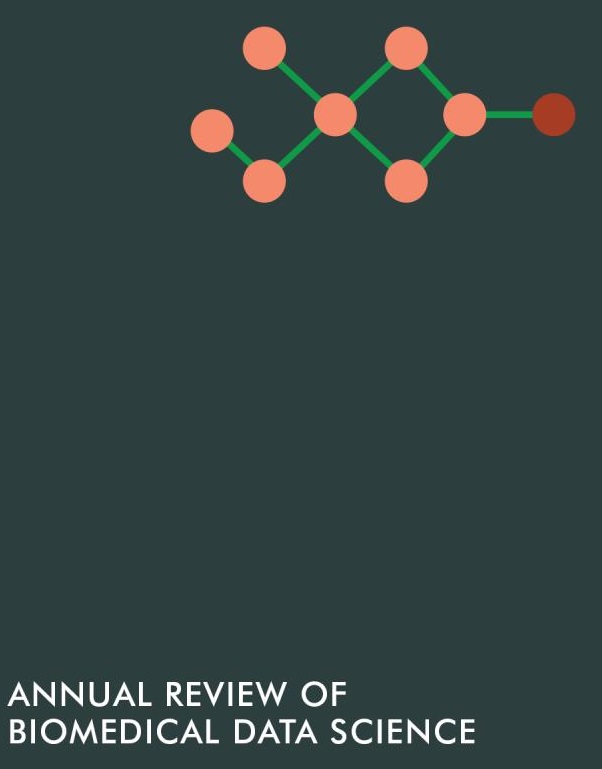生物分子数据资源:生物医学数据科学的生物信息学基础设施
IF 7
Q1 MATHEMATICAL & COMPUTATIONAL BIOLOGY
Annual Review of Biomedical Data Science
Pub Date : 2019-07-22
DOI:10.1146/ANNUREV-BIODATASCI-072018-021321
引用次数: 4
摘要
技术进步不断推动生物分子数据的生成和生物信息学基础设施的发展,使数据能够用于科学发现。出现了几种类型的数据管理资源,例如数据沉积数据库、增值数据库或知识库以及生物学驱动的门户。在这篇综述中,我们对这些资源的逐渐演变提供了一个独特的概述,并讨论了在开发中必须考虑的目标和特性。随着基因组学在医疗保健领域的应用越来越多,预计到2022年将测序6000万至5亿个全基因组,生物医学研究基础设施也在发生变化。用于联合访问的系统、便携式工具、提供参考数据和解释工具将使研究人员能够从这些数据中获得最大的好处。协作、协调和数据资源的可持续性是确保生物医学知识管理能够随着技术变化和数据量增长而扩展的关键。本文章由计算机程序翻译,如有差异,请以英文原文为准。
Biomolecular Data Resources: Bioinformatics Infrastructure for Biomedical Data Science
Technological advances have continuously driven the generation of bio-molecular data and the development of bioinformatics infrastructure, which enables data reuse for scientific discovery. Several types of data management resources have arisen, such as data deposition databases, added-value databases or knowledgebases, and biology-driven portals. In this review, we provide a unique overview of the gradual evolution of these resources and discuss the goals and features that must be considered in their development. With the increasing application of genomics in the health care context and with 60 to 500 million whole genomes estimated to be sequenced by 2022, biomedical research infrastructure is transforming, too. Systems for federated access, portable tools, provision of reference data, and interpretation tools will enable researchers to derive maximal benefits from these data. Collaboration, coordination, and sustainability of data resources are key to ensure that biomedical knowledge management can scale with technology shifts and growing data volumes.
求助全文
通过发布文献求助,成功后即可免费获取论文全文。
去求助
来源期刊
CiteScore
11.10
自引率
1.70%
发文量
0
期刊介绍:
The Annual Review of Biomedical Data Science provides comprehensive expert reviews in biomedical data science, focusing on advanced methods to store, retrieve, analyze, and organize biomedical data and knowledge. The scope of the journal encompasses informatics, computational, artificial intelligence (AI), and statistical approaches to biomedical data, including the sub-fields of bioinformatics, computational biology, biomedical informatics, clinical and clinical research informatics, biostatistics, and imaging informatics. The mission of the journal is to identify both emerging and established areas of biomedical data science, and the leaders in these fields.

 求助内容:
求助内容: 应助结果提醒方式:
应助结果提醒方式:


